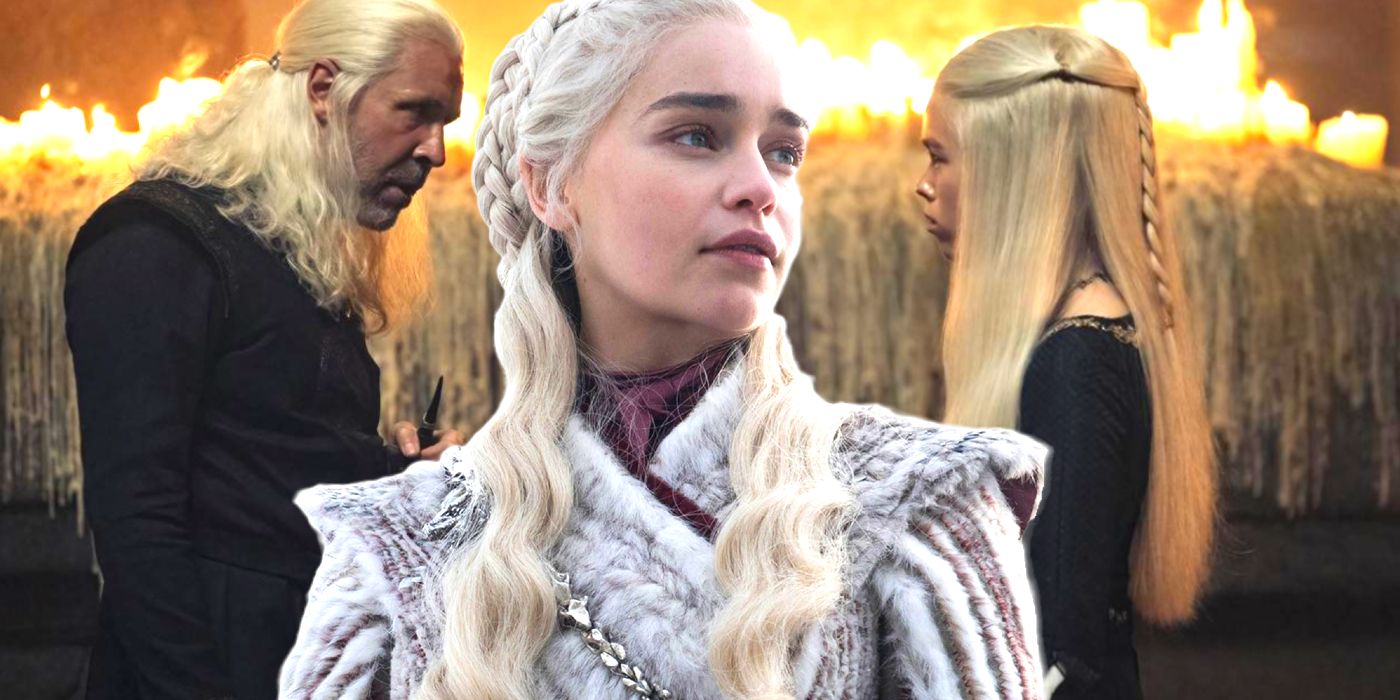
Aegon’s dream of A Song of Ice and Fire was a major revelation in House of the Dragon season 1, episode 1’s ending, and has continued to influence the show and impact the Dance of the Dragons. It not only changes what was known about House Targaryen’s history, but also retcons Game of Thrones and means certain events, in particular from season 8, can be seen in a different light. Here’s a breakdown of Aegon’s dream and what it means for both House of the Dragon and Game of Thrones.
What Does Aegon’s A Song Of Ice & Fire Dream Really Mean?
How The Prophecy Is Related To The White Walkers
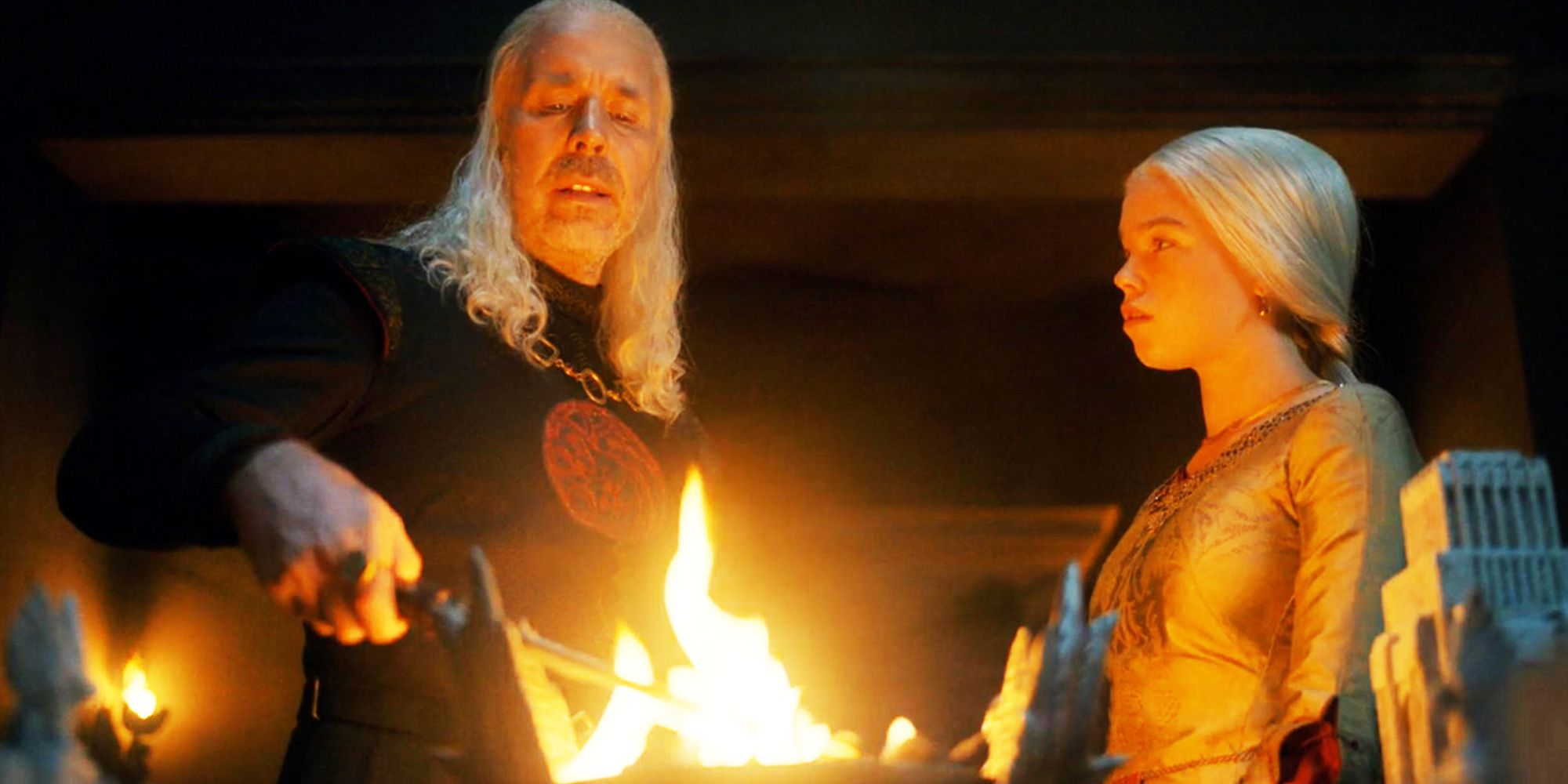
House of the Dragon season 1, episode 1 ended with King Viserys I Targaryen naming Rhaenyra, his daughter, as heir to the Iron Throne. That itself was a momentous decision for House of the Dragon’s story, but there was a lot more to it. Being named his heir, Rhaenyra had to be burdened with the knowledge all Targaryen Kings (and now the would-be Queen) have had: of Aegon Targaryen’s dream, which Viserys recounts:
“Aegon foresaw the end of the world of men. It’s to begin with a terrible winter, gusting out of the distant North. Aegon saw absolute darkness riding on those winds, and whatever dwells within will destroy the world of the living. When this great winter comes, Rhaenyra, all of Westeros must stand against it. And if the world of men is to survive, a Targaryen must be seated on the Iron Throne. A King or Queen, strong enough to unite the realm against the cold and the dark. Aegon called his dream ‘The Song of Ice and Fire.'”
Aegon’s dream is of something that should be familiar to Game of Thrones viewers, because it foretells the coming of the White Walkers and the second Long Night. The terrible winter, the darkness, and the threat that poses a risk to the entire world is a fair summation of the Night King’s Army of the Dead, even if it wouldn’t come for around 300 years after he had conquered Westeros.
Aegon’s prophecy adds new depth to A Song of Ice and Fire, giving it a more literal meaning: Ice = White Walkers, and Fire = Targaryens and their dragons. It reframes Aegon’s Conquest, from an act of pure ambition and power to one with a more noble aim.
Is Aegon’s Prophecy In The A Song Of Ice & Fire Books?
Will George R.R. Martin Introduce The Dream To His Novels?

Aegon Targaryen’s dream is not mentioned in Game of Thrones, and nor does his specific A Song of Ice and Fire prophecy appear in the book series from which it takes its name. This is brand-new information in House of the Dragon, but it is not too dissimilar to other prophecies surrounding the White Walkers and how they will be defeated.
Azor Ahai is said to be a great hero who will wield the burning sword, Lightbringer; the Prince That Was Promised prophecy, which is often changed interchangeably with Azor Ahai, is said to have “a song of ice and fire.” Both, tellingly, are rooted in the same idea of the ice and fire duality at the end of the world.
Martin gives far greater time to prophecies than Game of Thrones did, and with Daenerys still to come to Westeros, then there’s a good chance this will be revealed in the text at some point.
It’s obviously too late for Aegon’s dream to be in Game of Thrones, but it could still be in George R.R. Martin’s A Song of Ice and Fire books. The author still has two novels to finish – The Winds of Winter‘s release date is both long-awaited and delayed, A Dream of Spring will hopefully follow – and has set up the Others (the books’ name for the White Walkers) as the overarching threat in a similar way.
Martin gives far greater time to prophecies than Game of Thrones did, and with Daenerys still to come to Westeros, then there’s a good chance this will be revealed in the text at some point. Notably, Martin co-created House of the Dragon and gave his approval for the reveal, which further supports the idea he will make it book canon.
Did Game Of Thrones’ Targaryens Knows About Aegon’s White Walker Prophecy?
There’s No Suggestion Daenerys Or Jon Snow Knew About It
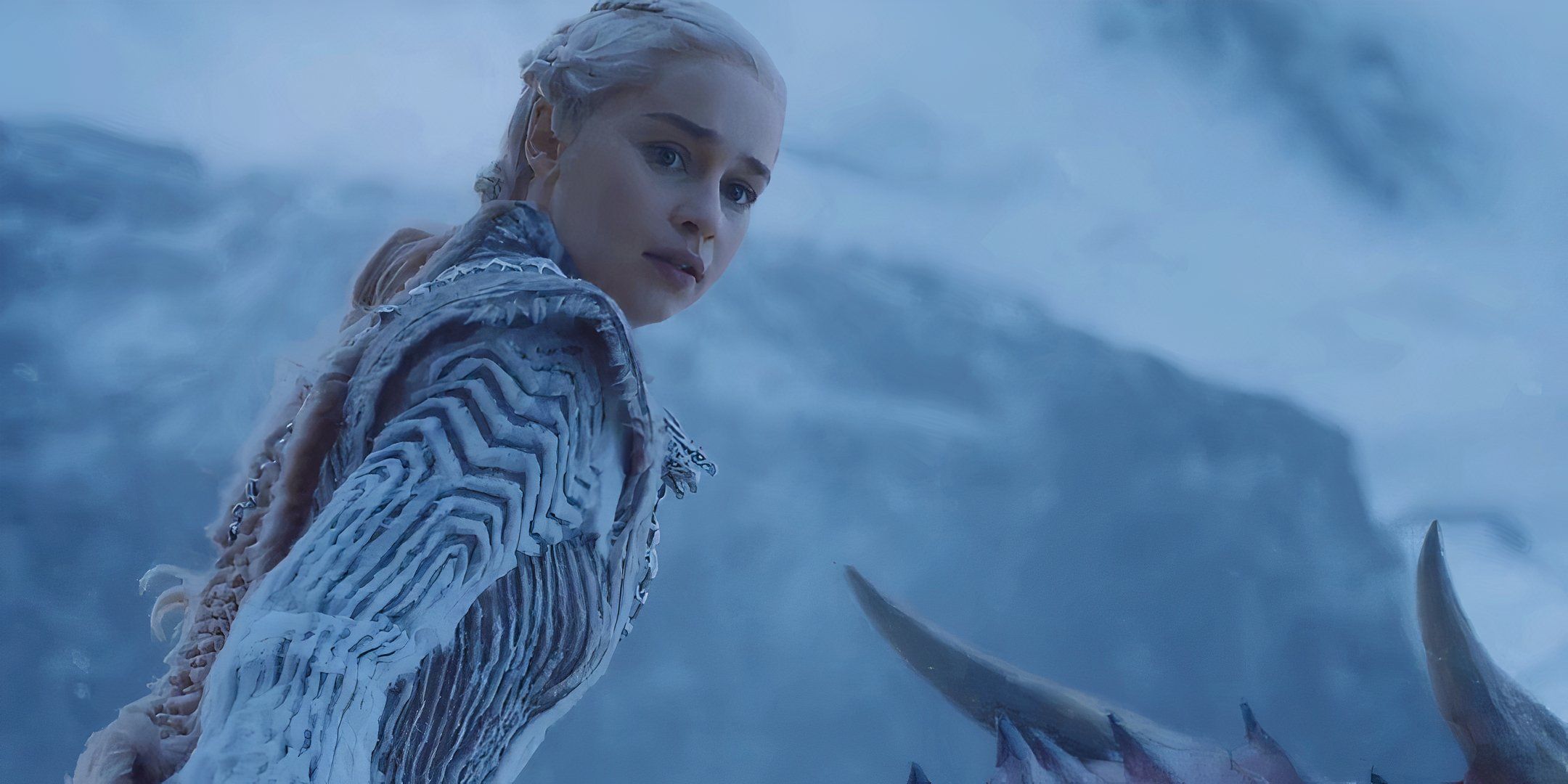
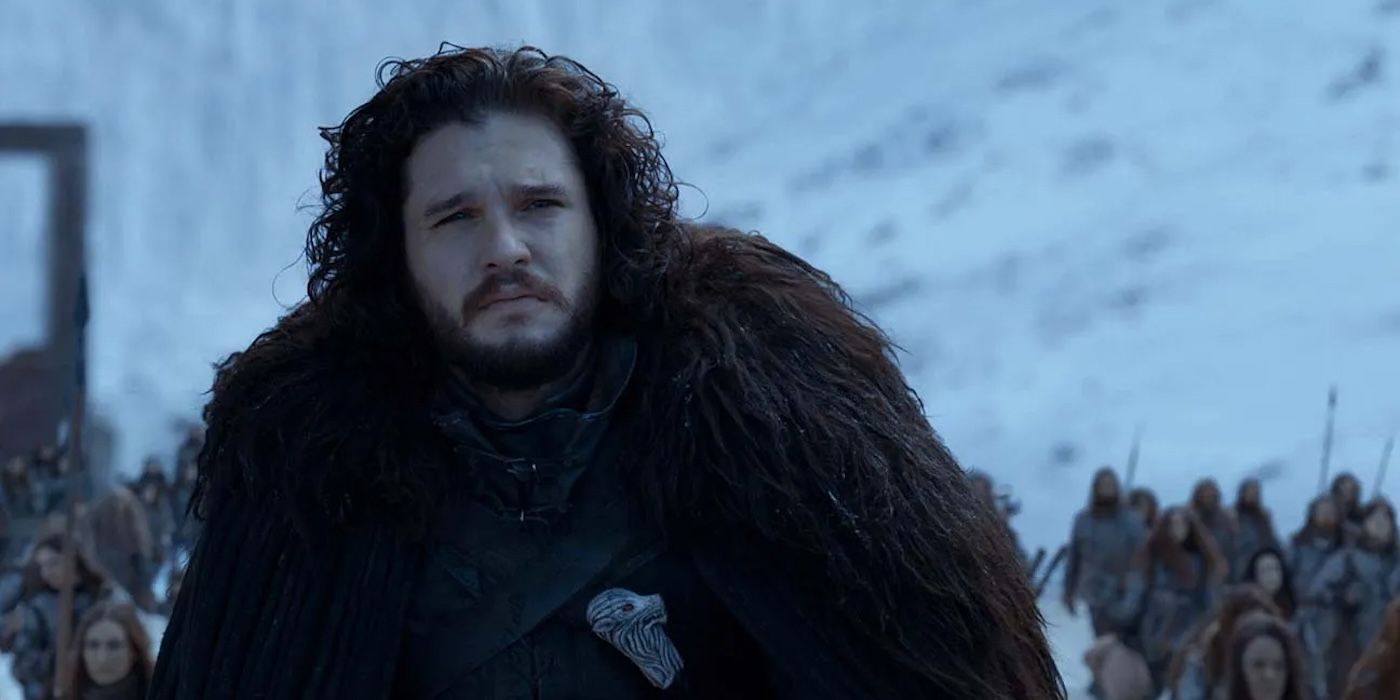
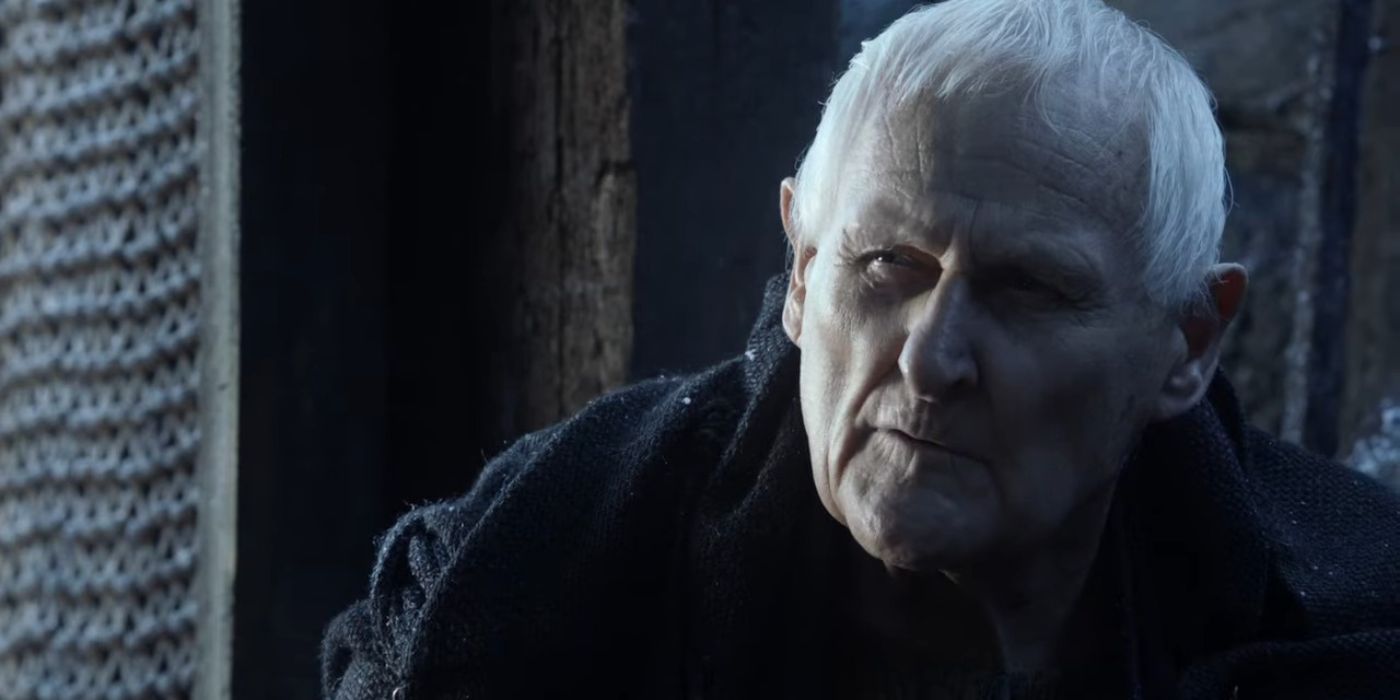
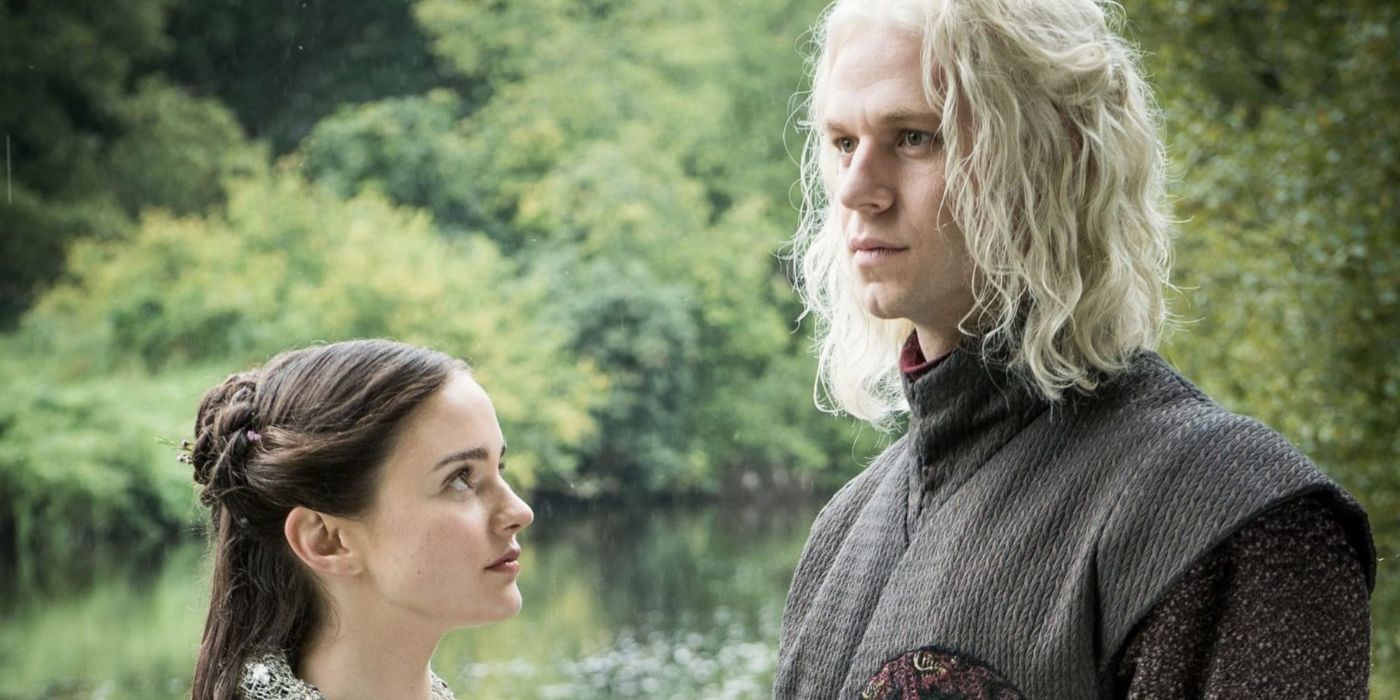
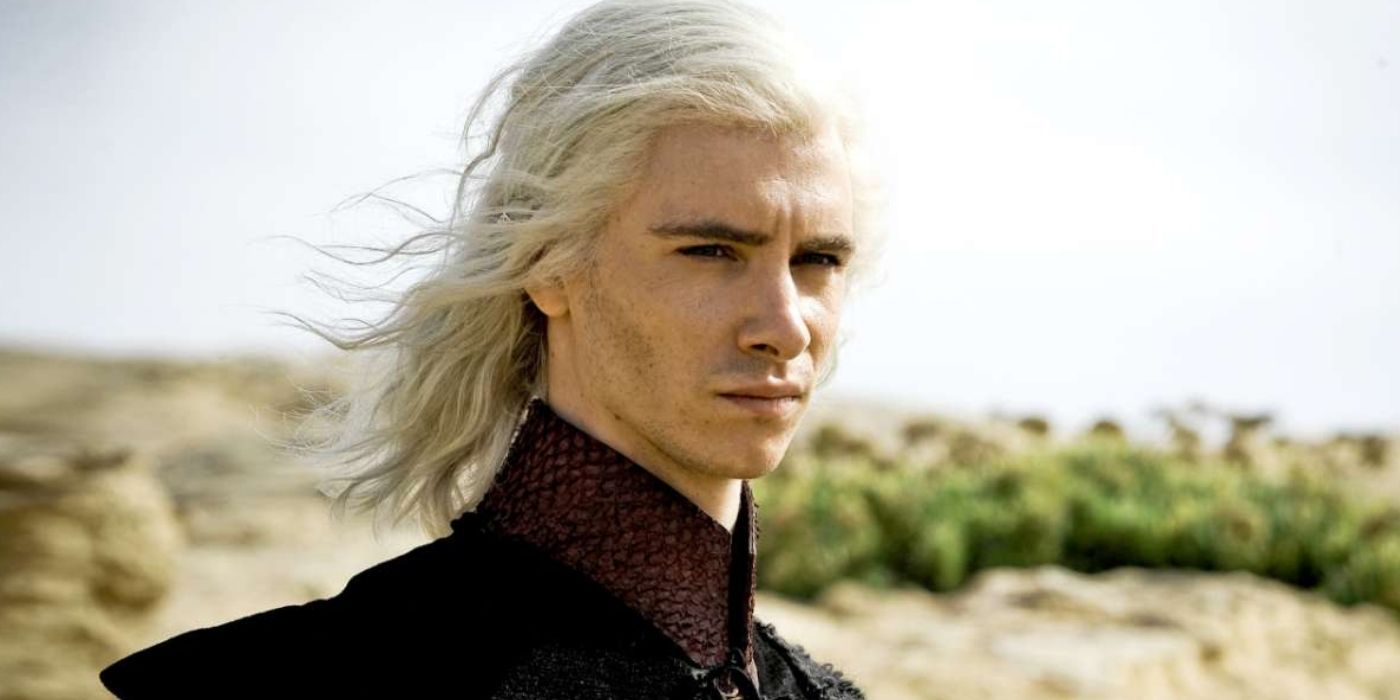





Game of Thrones‘ main Targaryens did not know about Aegon’s dream of the White Walkers, though that itself makes sense. The Targaryen dynasty ended before Daenerys had even been born, while Viserys himself had only been a small child, and few knew Jon Snow was a Targaryen.
Rhaegar Targaryen, meanwhile, was obsessed with the Prince That was Promised prophecy; he believed it could be him, and later his son.
It’s possible that Maester Aemon Targaryen did know about Aegon’s dream: he was the son of a King, and one who many favored to take the Iron Throne, while his brother, Daeron, was known to have dragon dreams. Aemon is certainly aware of the Prince That Was Promised prophecy in the books, and it’s possible these could be related or have been conflated across the years.
Rhaegar Targaryen, meanwhile, was obsessed with the Prince That Was Promised prophecy; he believed it could be him, and later his son. As the heir to the Mad King, Aerys II, then it’s possible he would have been told it by his father (had it got that far, and had Aerys decided to pass it down, neither of which can be taken for granted). He does speak of the song of ice and fire, though, as Daenerys hears in her House of the Undying visions in Game of Thrones season 2, with him saying:
“Aegon. What better name for a king… He is the prince that was promised, and his is the song of ice and fire.”
It’s plausible that Rhaegar knew of the Song of Ice and Fire dream as well, or had heard enough for it to be intertwined with the Prince That Was Promised, and perhaps even thought the child had to be named Aegon, which could also explain Jon Snow’s Targaryen name.
Is Aegon’s Prophecy The Same As The Prince That Was Promised?
The Two Prophecies Are Linked
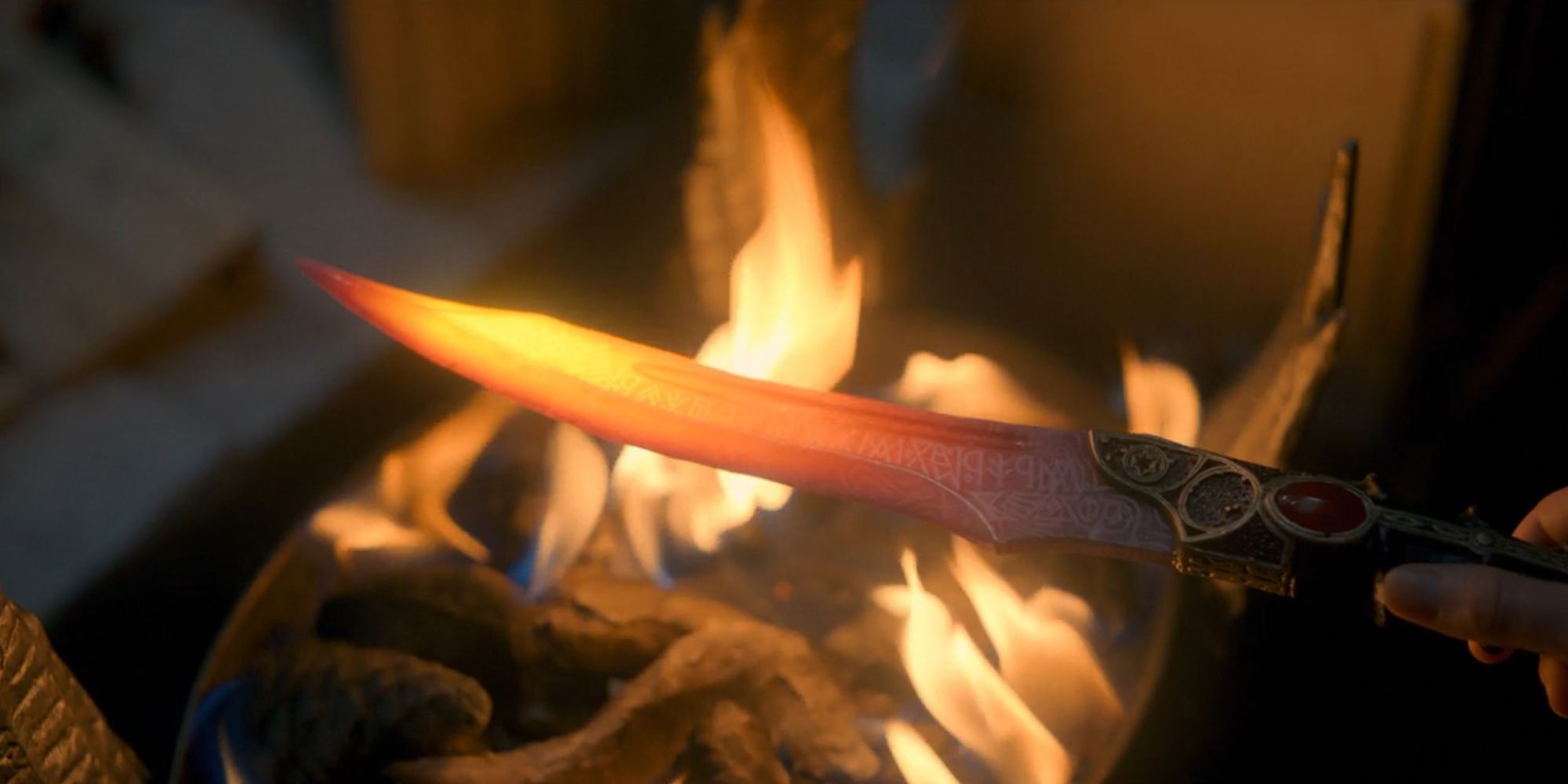
As mentioned, there is some overlap in theme and purpose between Aegon’s Song of Ice and Fire and the Prince That Was Promised prophecy from Game of Thrones. That’s with good reason, as the two are inextricably linked, which was confirmed by House of the Dragon season 1, episode 4. When looking at the inscription on the Valyrian steel blade that will come to be known as the catspaw dagger, it’s revealed to say: “From my blood… come the Prince That Was Promised… and his will be the Song of Ice and Fire.”
House of the Dragon does seemingly suggest that the Prince That Was Promised is actually part of Aegon’s dream, rather than a separate prophecy…
That’s incredibly similar to what Rhaegar says to Daenerys, which suggests he may have got it from the catspaw dagger himself, which could have belonged to him before the end of the Targaryen dynasty. The Prince That Was Promised prophecy foretells of a leader or hero who has “a song of ice and fire,” and is typically used somewhat interchangably with that of Azor Ahai. Simply put, the Prince That Was Promised, Azor Ahai, and Aegon’s dream are all about defeating the White Walkers.
House of the Dragon does seemingly suggest that the Prince That Was Promised is actually part of Aegon’s dream, rather than a separate prophecy, and that the Targaryen who sits the Iron Throne when the darkness comes will be that savior. Since the word “prince” is gender-neutral in High Valyrian, it also means it could be a woman – such as Rhaenyra or Daenerys.
Although Martin adding Aegon’s dream into the books does seem likely, it can’t be entirely conflated with the Prince That Was Promised, as Melisandre notes in A Storm of Swords that the savior was prophesied thousands of years ago. Still, it’s possible Aegon heard of this, and after his own dream, became convinced the Prince That was Promised would be a Targaryen.
How Aegon’s Dream Changed The Dance Of The Dragons
It Has A Major Impact On The Targaryen Civil War In House Of The Dragon
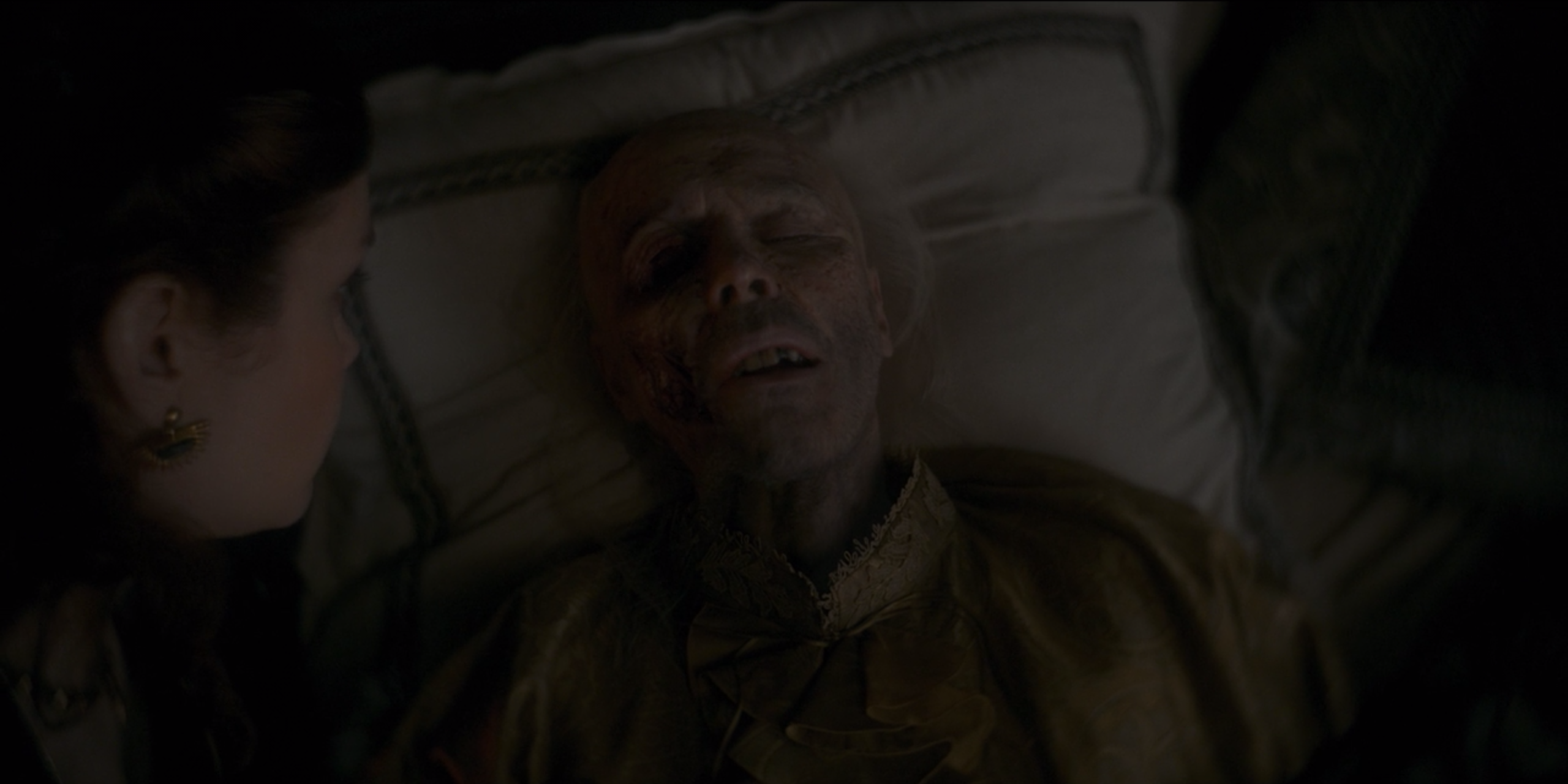
Aegon’s dream doesn’t just exist to foretell future events, but shapes the ongoing narrative of House of the Dragon too. This happened in both seasons 1 and 2, with major ramifications on Rhaenyra Targaryen and Alicent Hightower’s relationship, and the Targaryen family as a whole.
In House of the Dragon season 1, episode 8, a confused and dying Viserys told the story of Aegon’s dream to Alicent, unaware of who she really was. With Alicent having no prior knowledge for the prophecy, she took it to mean that he was naming their son, Aegon, as his heir instead of Rhaenyra, thus leading to her pushing his claim and having him crowned King. The civil war may have happened regardless, but Aegon’s dream directly led to the Dance of the Dragons.
In House of the Dragon season 2, Alicent learned of her mistake regarding the Song of Ice and Fire. However, by that point it was “too late” for her to change anything: blood had been spilled on both sides, banners called, and the realm was being divided. With all of that, the Conqueror’s prophecy has made the entire story a tragic misunderstanding.
How Aegon’s Song Of Ice & Fire Prophecy Changes The White Walkers’ Defeat
The Dream Doesn’t Exactly Fix Game Of Thrones Season 8’s Problems
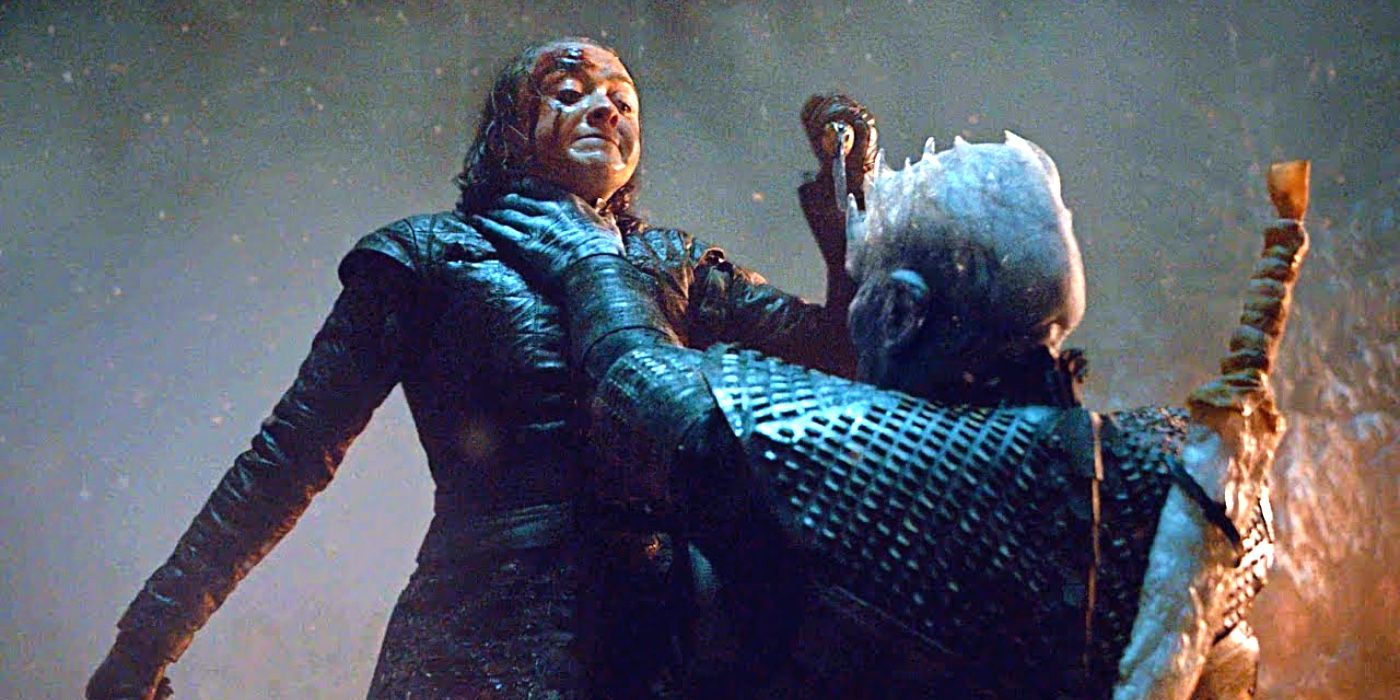
House of the Dragon‘s reveal of Aegon’s dream effectively serves to retcon its parent show, at least insofar as it was never said there before, and it does change how the events leading to Game of Thrones‘ ending are framed. If Daenerys and Jon had also known the Song of Ice and Fire, would their actions have been different? Perhaps.
Part of the point of prophecies in Game of Thrones is that they are often self-fulfilling, driving people to take actions they mat not have otherwise. Daenerys wanted the Iron Throne anyway, but paused her pursuit to help fight the dead; it’s not totally unreasonable to think those events might have been reversed if she knew of Aegon’s dream.
Regardless of who knows what, Aegon’s dream does have some unfortunate consequences on Game of Thrones. It doesn’t change the story, but does change unfold how season 8 unfolded. The White Walkers are supposed to be the ultimate threat, and House of the Dragon establishes that was the case during the Targaryens’ rule, which lasted for almost three centuries. Game of Thrones season 8 dealt with the White Walkers and the Night King in just three episodes.
It felt rushed then, with only one major battle between the living and the dead, but is even worse with this knowledge. House of the Dragon adds a lot to Game of Thrones, but not all of it is necessarily good. That’s not completely the fault of the prequel, because Aegon’s dream makes sense for its story and the wider World of Ice and Fire, but is hurt by the failings of its parent show.





